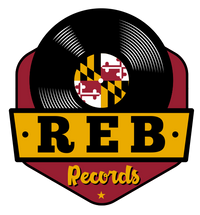
Revolver
Regular price $35.00 Save $-35.00/
Shipping calculated at checkout.
The Beatles Revolver on 180g LP
Sourced From the Original Master Tapes
Cut at Abbey Road Studios by a First-Rate Team of Producers and Engineers: Stringent Procedures and Safeguards Ensure Optimum Sound
When the dust settles amidst critical debates, fewer than ten albums compete for the title of the Best Album Ever Recorded. Revolver is one of the chosen few—and for good reason. Seemingly reflecting the music of the Beatles' biggest peers of the time but surpassing it all by leaps and bounds, Revolver overturned conceptions of what music was and could be. Without any doubt, Revolver altered how every band from then on made records. And as this stereo pressing proves, it still does.
Part of Capitol/Apple’s quintessential Beatles catalog masters series on LP, Revolver has been remastered by a dedicated team of engineers that includes Guy Massey, Steve Rooke, and Sam Okell with Paul Hicks and Sean Magee. Proper care and a painstaking series of steps were taken to ensure that music lovers would hear the Fab Four in all their stereo glory with unprecedented clarity and transparency.
Recorded before the Beatles’ personalities began to clash and in advance of the fog brought on by drug use, Revolver encompasses practically every imaginable style and then some. Gentle harmonic pop (“I Want to Tell You”), stained-glass acid rock (“She Said She Said”), upbeat soul (“Got to Get You Into My Life”), Indian (“Love You To”), and what, at the time, and in some ways still is, the most cutting-edge pop composition ever devised (“Tomorrow Never Knows”), a song that single-handedly reimagined and rewrote the rules of production.
Best yet, the Beatles sound cohesive, enthusiastic, and confident. There are no fractures in the chemistry, and the band amicably competes with itself in aiming for and achieving rock immortality. With George Emerick in the fold as the new engineer, the Beatles approached the studio as a chemistry lab. The biggest revelation? The potential of tape loops, as evidenced by “Tomorrow Never Knows,” where phasing, reversing, slowing, and sampling turned the composition into a piece of masterpiece theater. Ringo’s bass drum is also noticeably tighter, thanks to the addition of a sweater placed inside. All of the aspects are fully audible and amazingly preserved on this excellent LP pressing.
With EMI’s legendary Abbey Road Studios providing the backdrop, the four-year restoration process combined veteran expertise, state-of-the-art equipment, vintage studio gear, and rigorous testing to net what is without doubt the highest fidelity possible and authentic, jaw-dropping sound guaranteed to rival the original LPs. There is no longer any need to pay hundreds of dollars for Japanese pressings.
At the start of the restoration process, engineers conducted extensive tests before copying the analog master tapes into the digital realm using 24-bit/192 kHz resolution and a Prism A-D converter. Dust build-ups were removed from tape machine heads after the completion of each title. Artifacts such as electrical clicks, microphone vocal pops, excessive sibilance, and poor edits were improved upon as long as it was determined that doing so didn’t at all damage the integrity of the songs. Similarly, de-noising technology was applied in only a few necessary spots and on a sum total of less than five of the entire 525 minutes of Beatles music.
In cutting the digital masters to vinyl, stringent safeguards and procedures were employed. After cutting to lacquer, determined to be warmer and consistent than cutting to DMM, the next step was to use the Neumann VMS80 cutting lathe at Abbey Road. Following thorough mechanical and electrical tests to ensure it was operating in peak condition, engineer Sean Magee cut the LPs in chronological release order. He used the original 24-bit remasters rather than the 16-bit versions that were required for CD production. It was also decided to use the remasters that had not undergone ‘limiting,' a procedure to increase the sound level.
Having made initial test cuts, Magee pinpointed any sound problems that can occur during playback of vinyl records. To rectify them, changes were made to the remasters with a Digital Audio Workstation. For example, each vinyl album was listened to for any ‘sibilant episodes.' vocal distortion that can occur on consonant sounds such as S and T. These were corrected by reducing the level in the very small portion of sound causing the undesired effect.
Similarly, any likelihood of inner-groove distortion was addressed. As the stylus approaches the center of the record, it is liable to track the groove less accurately. This can affect the high-middle frequencies, producing a ‘mushy’ sound particularly noticeable on vocals. Using what Magee has described as ‘surgical EQ,’ problem frequencies were identified and reduced in level to compensate for this.
The last phase of the vinyl mastering process began with the arrival of the first batches of test pressings made from master lacquers that had been sent to the two pressing plant factories. Stringent quality tests identified any noise or click appearing on more than one test pressing in the same place. If this happened, it was clear that the undesired sounds had been introduced either during the cutting or the pressing stage and so the test records were rejected. In the quest to achieve the highest quality possible, the Abbey Road team worked closely with the pressing factories and the manufacturers of the lacquer and cutting styli.
For this project, there was no such thing as too many cooks in the kitchen. Yes, it took a village to get it right.
The Beatles Revolver Track Listing:
1. Taxman
2. Eleanor Rigby
3. I'm Only Sleeping
4. Love You To
5. Here, There And Everywhere
6. Yellow Submarine
7. She Said She Said
8. Good Day Sunshine
9. And Your Bird Can Sing
10. For No One
11. Doctor Robert
12. I Want To Tell You
13. Got To Get You Into My Life
14. Tomorrow Never Knows
Sourced From the Original Master Tapes
Cut at Abbey Road Studios by a First-Rate Team of Producers and Engineers: Stringent Procedures and Safeguards Ensure Optimum Sound
When the dust settles amidst critical debates, fewer than ten albums compete for the title of the Best Album Ever Recorded. Revolver is one of the chosen few—and for good reason. Seemingly reflecting the music of the Beatles' biggest peers of the time but surpassing it all by leaps and bounds, Revolver overturned conceptions of what music was and could be. Without any doubt, Revolver altered how every band from then on made records. And as this stereo pressing proves, it still does.
Part of Capitol/Apple’s quintessential Beatles catalog masters series on LP, Revolver has been remastered by a dedicated team of engineers that includes Guy Massey, Steve Rooke, and Sam Okell with Paul Hicks and Sean Magee. Proper care and a painstaking series of steps were taken to ensure that music lovers would hear the Fab Four in all their stereo glory with unprecedented clarity and transparency.
Recorded before the Beatles’ personalities began to clash and in advance of the fog brought on by drug use, Revolver encompasses practically every imaginable style and then some. Gentle harmonic pop (“I Want to Tell You”), stained-glass acid rock (“She Said She Said”), upbeat soul (“Got to Get You Into My Life”), Indian (“Love You To”), and what, at the time, and in some ways still is, the most cutting-edge pop composition ever devised (“Tomorrow Never Knows”), a song that single-handedly reimagined and rewrote the rules of production.
Best yet, the Beatles sound cohesive, enthusiastic, and confident. There are no fractures in the chemistry, and the band amicably competes with itself in aiming for and achieving rock immortality. With George Emerick in the fold as the new engineer, the Beatles approached the studio as a chemistry lab. The biggest revelation? The potential of tape loops, as evidenced by “Tomorrow Never Knows,” where phasing, reversing, slowing, and sampling turned the composition into a piece of masterpiece theater. Ringo’s bass drum is also noticeably tighter, thanks to the addition of a sweater placed inside. All of the aspects are fully audible and amazingly preserved on this excellent LP pressing.
With EMI’s legendary Abbey Road Studios providing the backdrop, the four-year restoration process combined veteran expertise, state-of-the-art equipment, vintage studio gear, and rigorous testing to net what is without doubt the highest fidelity possible and authentic, jaw-dropping sound guaranteed to rival the original LPs. There is no longer any need to pay hundreds of dollars for Japanese pressings.
At the start of the restoration process, engineers conducted extensive tests before copying the analog master tapes into the digital realm using 24-bit/192 kHz resolution and a Prism A-D converter. Dust build-ups were removed from tape machine heads after the completion of each title. Artifacts such as electrical clicks, microphone vocal pops, excessive sibilance, and poor edits were improved upon as long as it was determined that doing so didn’t at all damage the integrity of the songs. Similarly, de-noising technology was applied in only a few necessary spots and on a sum total of less than five of the entire 525 minutes of Beatles music.
In cutting the digital masters to vinyl, stringent safeguards and procedures were employed. After cutting to lacquer, determined to be warmer and consistent than cutting to DMM, the next step was to use the Neumann VMS80 cutting lathe at Abbey Road. Following thorough mechanical and electrical tests to ensure it was operating in peak condition, engineer Sean Magee cut the LPs in chronological release order. He used the original 24-bit remasters rather than the 16-bit versions that were required for CD production. It was also decided to use the remasters that had not undergone ‘limiting,' a procedure to increase the sound level.
Having made initial test cuts, Magee pinpointed any sound problems that can occur during playback of vinyl records. To rectify them, changes were made to the remasters with a Digital Audio Workstation. For example, each vinyl album was listened to for any ‘sibilant episodes.' vocal distortion that can occur on consonant sounds such as S and T. These were corrected by reducing the level in the very small portion of sound causing the undesired effect.
Similarly, any likelihood of inner-groove distortion was addressed. As the stylus approaches the center of the record, it is liable to track the groove less accurately. This can affect the high-middle frequencies, producing a ‘mushy’ sound particularly noticeable on vocals. Using what Magee has described as ‘surgical EQ,’ problem frequencies were identified and reduced in level to compensate for this.
The last phase of the vinyl mastering process began with the arrival of the first batches of test pressings made from master lacquers that had been sent to the two pressing plant factories. Stringent quality tests identified any noise or click appearing on more than one test pressing in the same place. If this happened, it was clear that the undesired sounds had been introduced either during the cutting or the pressing stage and so the test records were rejected. In the quest to achieve the highest quality possible, the Abbey Road team worked closely with the pressing factories and the manufacturers of the lacquer and cutting styli.
For this project, there was no such thing as too many cooks in the kitchen. Yes, it took a village to get it right.
The Beatles Revolver Track Listing:
1. Taxman
2. Eleanor Rigby
3. I'm Only Sleeping
4. Love You To
5. Here, There And Everywhere
6. Yellow Submarine
7. She Said She Said
8. Good Day Sunshine
9. And Your Bird Can Sing
10. For No One
11. Doctor Robert
12. I Want To Tell You
13. Got To Get You Into My Life
14. Tomorrow Never Knows

